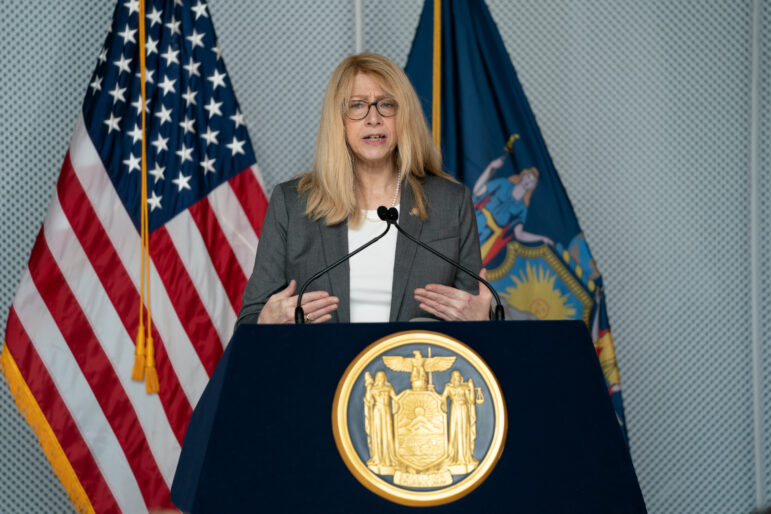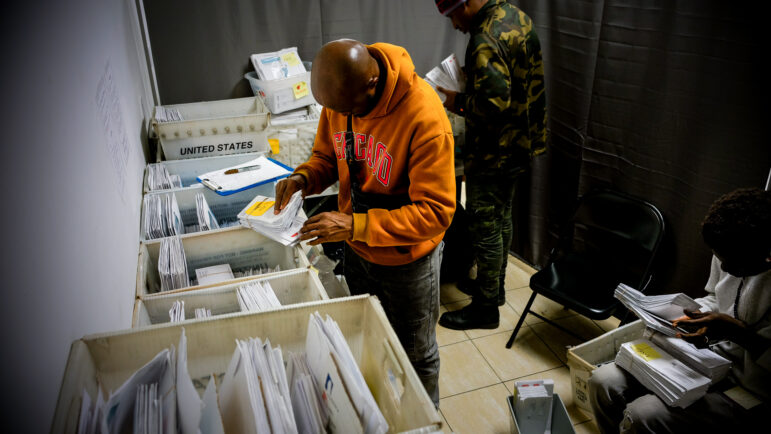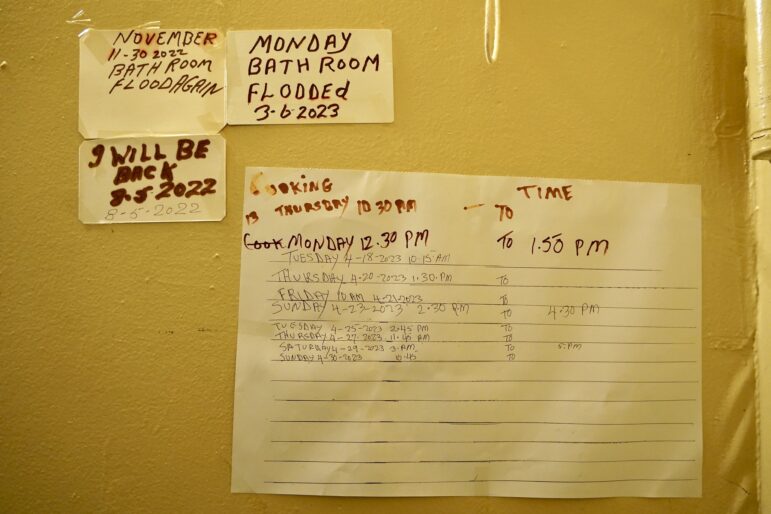It was an especially grim gathering of school board members from across the city, and Anne Mackinnon left 110 Livingston Street in disgust.
She was fed up with the infighting and the distractions from improving the city’s troubled 1.1 million-student school system, and she felt that the public and the Board of Education had little regard for local school boards. On the subway home to Flatbush that evening last February, Mackinnon–a nine-year veteran of School Board 22–resolved to find a new way to do business. “I could see that people weren’t coming to our meetings,” she says, “and I was in touch with school board members throughout the city who said that this just isn’t working.”
Since then, she’s begun shopping around a proposal to change that. Her first step: Abolish the elected local boards. From there, she suggests, each of the city’s 32 school districts would get its own seven-member advisory board, consisting of education experts appointed by district superintendents with the chancellor’s approval, along with parents, principals and teachers chosen by parents’ groups and educators’ unions.
The direct involvement of everyone from the chancellor to parents is key, she says: “If the chancellor has incentive to work with the boards, we’re going to have so much more to share with the public.”
So far the idea has won praise from a number of education experts, elected officials and parents who are eager to see the current boards–once renowned for their corruption, now dismissed as irrelevant or worse–dismantled forever.
Her timing, of course, couldn’t be better. In January, Mayor Mike Bloomberg put the boards on notice in his first State of the City address. “We need to create opportunities for parents to participate in our educational system, but local school boards are not the way,” he said. “Parents want to talk to educators, not middlemen.”
Achieving that goal, however, could prove to be one of the biggest challenges of the mayor’s tenure. To their defenders, the local school boards were too hard-won–in intense, racially divisive battles 30 years ago–to just let them fade away. They remain politically connected, serving as a proving ground for a caucus of new City Council members who have vowed to fight for their survival. One newly formed group of current school board members is even threatening a legal battle to defend the system.
One of those Council members, Al Vann, remembers when many parents and educators viewed school boards as their best hope for reforming the schools. It was 1968, and Vann was acting principal at a middle school in Ocean Hill-Brownsville. At that time, the Board of Ed controlled the entire school system. In response to complaints from parents in poor minority neighborhoods that schools were failing their students, the Ford Foundation helped fund an experimental district in Vann’s neighborhood that gave control to local educators and families.
The program started off smoothly, but it ended as a fiery chapter in city history. Charging that Board of Ed employees were seeking to sabotage the decentralization effort, black district leaders exiled 13 teachers and six administrators–most of them Jewish–to other districts. As the teachers’ union protested the transfers, the two sides traded harsh accusations of racism and anti-Semitism. Teachers declared a strike, shuttering most of the city’s schools. The conflict finally ended when the Board of Ed agreed to set up local school boards throughout the city.
Since then, decentralization has achieved many of its aims. Local school boards have allowed parents and teachers to create and manage their own schools, and they have overseen the hiring of more minority teachers. But in several districts, the boards’ broad powers–they controlled school budgets and hired and fired highly paid principals and masses of lower-level workers–proved too tempting. Board members were appointing incompetent political cronies to lead districts, using teachers as campaign workers and looting school budgets to furnish their offices. After a wave of corruption scandals, the state legislature eliminated nearly all of their powers in 1996, leaving them with only the ability to advise the chancellor on superintendent hiring and to set school zones, approve construction projects and draft vague policy directives.
While it pained him to see his efforts dismantled, Vann–by then a member of the State Assembly–voted in favor of dissolving those powers. He had grown fed up with the troubled board in his Bedford-Stuyvesant district. Five years later, however, he regrets his vote, and blames insufficient training and oversight from the Board of Ed for the boards’ troubles. He and eight fellow Council members, most of them former school board members, are supporting a resolution that calls on the state legislature–which has the ultimate say in the city’s school governance–to give the boards another chance. “Community school boards need to be made stronger, not eliminated,” says Vann.
When and how a change may come is unclear. A task force set up by Assembly Speaker Sheldon Silver was expected to release recommendations in March. “We haven’t settled on any one model yet,” says Deputy Mayor Dennis Walcott, a member of the task force, adding that whatever the group does decide on should “maximize” local parent involvement.
The legislature will need to craft its proposals carefully. Any changes need the approval of the U.S. Department of Justice, which must determine how the proposals would affect minority voting rights.
That gives hope to Reginald Bowman, president of the Ocean Hill-Brownsville school board and a founder of the United School Boards of the City of New York, which he says has recruited members of 20 school boards to fight for their own preservation. Replacing elected board members with appointees flies in the face of democracy, he says. Should his group’s negotiations with state legislators not go favorably, he adds, a lawsuit under the federal Voting Rights Act is possible.
Of course, school boards have not exactly been a vision of democracy. In the last election, in 1999, only 2.5 percent of eligible voters went to the polls. This lack of public attention prompted lower Manhattan’s School Board 2, whose district is ranked No. 2 in the city, to vote unanimously last month for a resolution to abolish the current school board system. “We know there is a better way,” says Karen Feuer, the board’s president, who has been circulating Anne Mackinnon’s plan as the answer. Assemblymember Steven Sanders, chair of the education committee and a member of Silver’s school governance task force, has praised it as “as good an alternative to elected community school boards as I’ve seen.”
Among the competing suggestions: creating borough-level boards, or shifting more power onto school leadership teams, school-based policy-setting councils of parents, teachers and administrators. Whatever the solution, proposed abolition is creating a stir. “They’ve awakened the sleeping giant,” says Bowman. “They’re going to be surprised by the number of people throughout the city who are organized, who are not willing to go away quietly and just let this thing happen.”
Maura McDermott is a former education reporter for the Riverdale Press.








